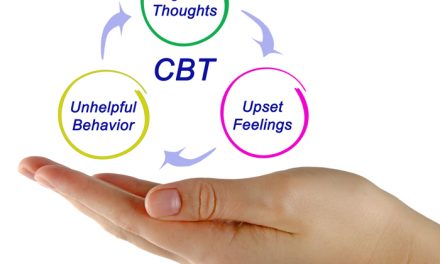Take a moment to think back on the last couple of days in your life. We are hopeful things have been going well for you over that period of time. But even if they have been, there is a good chance that the first thing you thought of when you looked back was something less than positive.
Maybe you thought of something you said to someone that you wish you hadn’t. Maybe you thought of a missed deadline or an appointment you forgot about. Maybe you thought about that person who cut you off in traffic and how angry that made you.
Why would you do that? After all, over the same period of time, there were likely at least as many positive things that occurred. A warm conversation with a friend. A project completed successfully. A commute that went smoothly while all your favorite songs played on the radio.
So, again, why would your brain immediately call to mind negative experiences from the past couple of days?
According to an article titled “Why Our Brains Fixate on the Bad (and What to Do About It),” written by Jennifer Gastelum and published by the online law enforcement-focused publication Lexipol, the reason is biological:
Our brains have been hardwired through evolution to focus on the negative. Traced back to prehistoric days, primitive man had to be able to register threats to avoid danger and increase survival rates. Individuals who were more attuned to danger (negative stimuli) stayed alive longer and passed on their genes. Focusing on the bad developed as a way of our brains keeping us safe and it is still wired into our genetics today.
Gastelum provides a list of ways that this tendency to focus on the negative plays out in our day to day lives. Her list includes:
- Noticing negative events and recalling them more vividly than positive ones
- Dwelling on negative events, including when daydreaming
- Giving more importance/weight to negative events
- Focusing on the negative, even if the negative event is insignificant
- Remembering insults/criticism more than praise
- Being skeptical of new people, places, or things
- Making decisions based on avoiding negative results
Sound familiar? Probably so. And that’s a problem for most everyone—but especially for a person who is in recovery from a substance use disorder. Dwelling on the negative and ignoring the positive in your life puts you at increased danger of experiencing a relapse.
So what can you do about this situation? We have a few ideas.
Pursue Good Mental Health
When you are struggling with symptoms of a mental health disorder like depression or anxiety, it can make it even more difficult to focus on the good things in your life. That is one reason that substance use disorders and mental health disorders are often entangled.
Happily, however, the reverse is true as well: Good mental health and ongoing sobriety are frequently intertwined as well. So working on your mental health—perhaps with the assistance of a professional therapist or your doctor—is always a good way to keep your spirits up and your sobriety intact.
Read more: “The Importance of Your Mental Health in Recovery”
Count Your Many Blessings
Cultivating an ongoing sense of gratitude for the positive things in your life is a great way to shift your focus from the bad to the good—and to protect your sobriety. And it can be a wonderful idea to make this spirit of gratefulness into a daily habit, perhaps by keeping a gratitude journal.
It couldn’t be easier. Each day, simply write down three things—big or small, the same as yesterday or entirely new, personal to you or more widely joyous—that you are grateful for. Those are the things to keep in mind when it seems like you have no reason to hold on to your hard-won sobriety.
Read more: “A Spirit of Gratitude Supports Your Recovery”
Develop a Growth Mindset
It can be easy to believe that everything about us is determined and can’t be changed. This idea is called a “fixed mindset,” and it assumes that everything you are and can be is already finalized. You might wish, for example, that you could learn to be more patient, but a fixed mindset would have you believe that your ability to demonstrate patience is largely out of your control.
A growth mindset, on the other hand, is open to possibilities for growth—and for hope. When you have a growth mindset, you are better able to set, pursue, and achieve goals. There might be setbacks, but those setbacks are not final because growth is always possible. This way of thinking about the world is focused on positive possibilities rather than negativity and defeatism.
Read more: “Give Yourself Grace to Allow for Growth”
We Are Positive We Can Help You Get Sober
If you are ready to make a transformational change in your life, we are ready to help you reclaim and maintain your sobriety. Located near St. Louis, Missouri, and named among the best substance use disorder treatment centers in the country, The Aviary Recovery Center offers inpatient and outpatient treatment for substance use disorders and co-occurring mental health disorders.










